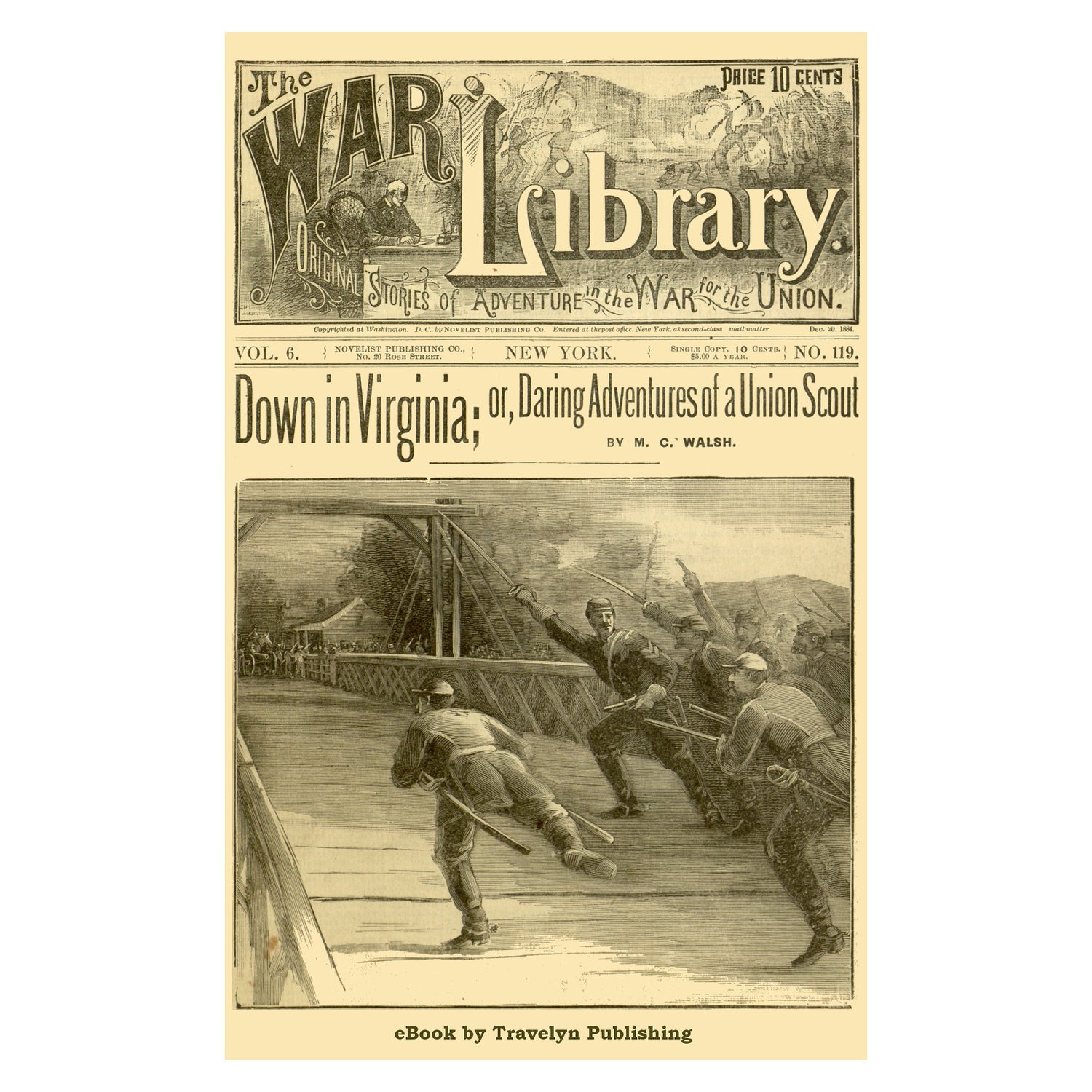
Down in Virginia; or, Daring Adventures of a Union Scout
“The War Library,” originally published in the 1880s by Novelist Publishing Co. in New York, is a series of dime novels about the American Civil War—or, as the war was called at the time (at least by the sympathizers of the North), “the War for the Union.” Featuring characters, stories, and plotlines set in the midst of, or vicinity of, actual Civil War battles, and written by authors who seemed to possess first-hand knowledge of those battles, the War Library provides the reader with a unique chance to experience, from a personal perspective, the conditions, passions, and philosophical issues of one of the most fascinating periods in history. Civil War buffs, of which there are many, can do no better.
Down in Virginia; or, Daring Adventures of a Union Scout, number 119 of the series and originally published December 20, 1884, is a story of romance, obsession, and espionage that takes place in the midst of the bloody battles of the Shenandoah Valley in 1864, culminating with the Battle of Cedar Creek, a hard-fought victory by Maj. Gen. Phil Sheridan that ended the Confederacy’s chances at any sort of offensive in the Valley.
The listed author, “M. (Maurice) C. Walsh,” is an almost completely unknown person who is responsible for at least ten novels published as part of The War Library series. It is unfortunate that we have been unable to learn anything about this person’s history. (Although we can say with confidence that this is not the Maurice Walsh of Ireland who wrote The Quiet Man.)
Preparing old books (or, as in this case, weekly magazines) for digital publication is a labor of love at Travelyn Publishing. We hold our digital versions of public domain books up against any others with no fear of the comparison. Our conversion work is meticulous, utilizing a process designed to eliminate errors, maximize reader enjoyment, and recreate as much as possible the atmosphere of the original book even as we are adding the navigation and formatting necessary for a good digital book. While remaining faithful to a writer’s original words, and the spellings and usages of his era, we are not above correcting obvious mistakes. If the printer became distracted after placing an ‘a’ at the end of a line and then placed another ‘a’ at the beginning of the next line (they used to do this stuff by hand you know!), what sort of mindless robots would allow that careless error to be preserved for all eternity in the digital version, too? Not us. That’s why we have the audacity to claim that our re-publications are often better than the originals.
